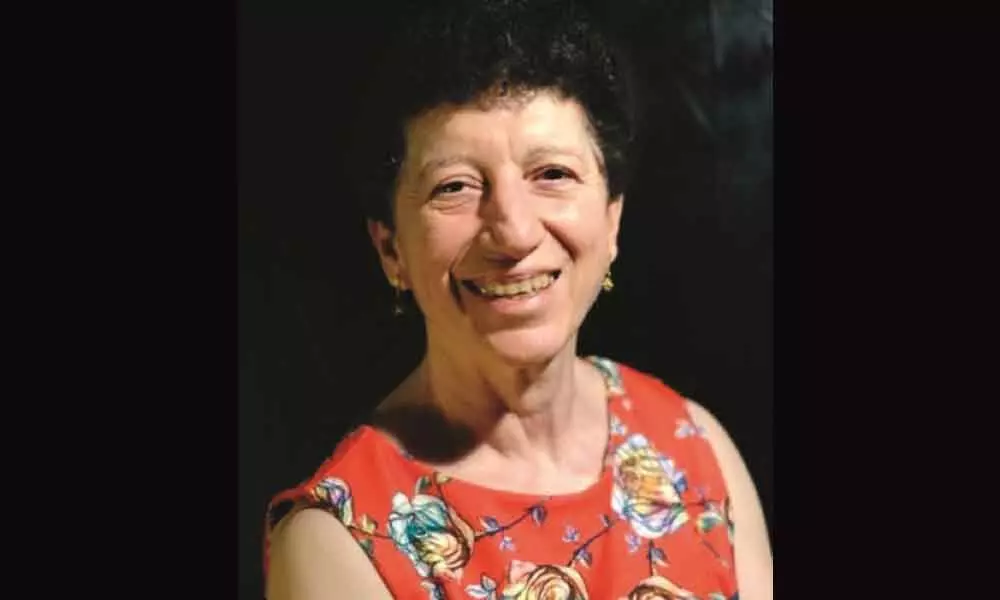Just In

“I try to trace the history of the Parsis, as there is no recorded history of the Parsis in India, except for a poem, ‘Kissa-e-Sanjan’ written in 1599 by a priest, BomanKekobad
The book 'Pioneering Parsis of Calcutta', written by Prochy N Mehta and published by Niyogi Books, owes its origin to its author's passionate desire to learn more about her Parsi heritage by enquiring into the community's recent history. This initial curiosity turned into a voyage of discovery, which changed her perception of her community and awoke in her an intense pride in the Parsi stalwarts of yesteryear. Mehta's meticulous research reaped rich dividends as she slowly dusted off the cobwebs of history that revealed the pioneering Parsis' arduous journey to Kolkata, their forward thinking, their broad-minded approach, their willingness to give and to improve the lives of all around them. These extraordinary Parsi men and women played a prominent role in society by taking upon themselves the responsibility of helping one and all, regardless of class, caste, creed, or colour. Their ability in business and faith in the future was matchless. These early Parsis were not afraid of taking on the establishment and fought publicly to resolve disputes where the orthodox members were unwilling to give the reformists their way.
The author shares, "The book weaves through intricate family relationships and gives the deep connect to the two legal cases, which affect our identity with Kolkata. It showcases our community as a modern progressive one, led by Rustumji D. Mehta, son of D.B. Mehta and Trustee of the D.B. Mehta fire temple."
"I try to trace the history of the Parsis, as there is no recorded history of the Parsis in India, except for a poem the Kissa-e-Sanjan written in1599 by a priest,BomanKekobad," she adds.
Writing the book has been Prochy's journey of discovery as well, She relates, "An interesting fact is that we had forgotten our religion till Changa Asha found a group of Parsis in about 1490 living amongst the Hindus as a tribe following Hindu customs and way of life. Till today, the World Zoroastrian Organisation is finding such co-religionists living in poverty in the villages of Gujarat and seeks to rehabilitate them.
RustumjiBanaji may have been the most prominent man in Bengal in the 1800s;owner of Kidderpore and Salkia docks, master ship builder, pioneer in banking, insurance, social service, social reform, and shipping. But alas, forgotten today.
Many of the pioneer Parsis of Bombay had their early roots in Kolkata. Sir Jamshedji Jeejeebhoy;NusserwanjiCowasji Petit; Dinshaw Petit;FramjiBanaji (brother of RustumjiBanaji); the Wadia family of shipbuilders;Meherwanji Mehta, father of Phirozshaw Mehta;KhurshedjiCama; Dadabhoy Navroji; Jamshedji Madan (father of Indian Cinema);and Dorab Mehta (Meherwanji's brother), who had done extensive charitable work for the city of Navsari.
Then there were the nationally famous Parsis who belonged to Calcutta but were forgotten by us. D.N. Wadia, the world-famous geologist;ErachBhiwandiwala, the artist; A.C. Ardeshir and his famous horse, Ethics;and Dr IrachTaraporewala, who translated the Gathas and wrote the Divine Songs of Zarathusthra.
And then there was the Tata family connected through marriage with the Mehta family. Jamshedji and our Dhunjibhoy met at DadabhaiNavroji's home in England, where they purchased machinery for their cotton mills, Empress Mills, Nagpur, and Empress of India Mills at Srirampur. Dhunjibhoy's grandson,Phiroze Sethna, and Jamshedji's son, Ratan, married the daughters of Ardesher Sett, Navaz, and Banoo. This must have sealed the bond of friendship among the families."

© 2024 Hyderabad Media House Limited/The Hans India. All rights reserved. Powered by hocalwire.com







